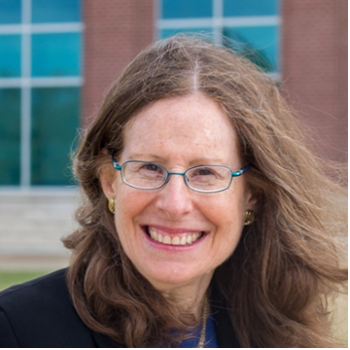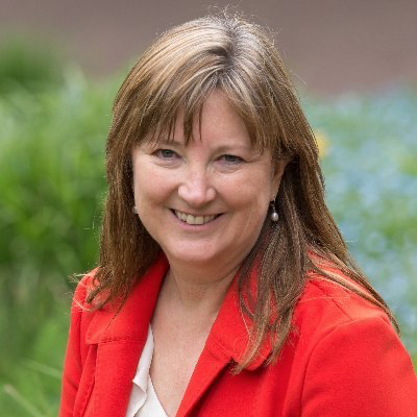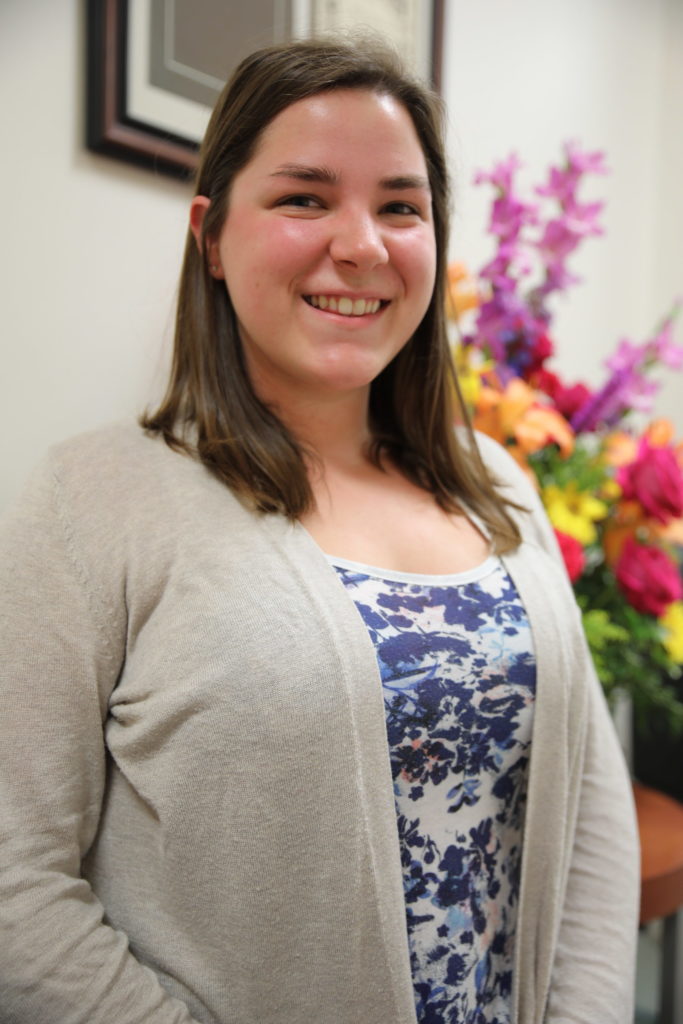Sharing Your Science: Resources from Houston’s ComSciCon 2021 Meeting (Part 1)

This article is part of a series by Katie Lillis, here is Part One and here is Part Two.
As scientists, sharing our work complements the experiments themselves. The ability to clearly communicate our findings and their implications is crucial for building a foundation of scientific knowledge. To train the next generation of effective science communicators, the Houston chapter of ComSciCon hosted its annual conference April 10-17th, 2021. I had the pleasure of attending this conference along with other UT Health San Antonio students and wanted to share some of the key points we can apply to our work to make it as engaging as possible.
Part 1: Revising Your Work
 Whether is it submitting papers or designing grant proposals, writing is an essential component of successfully communicating science. Developing writing skills comes with continuous practice and learning the best ways to convey ideas. In her workshop “Influencing through Editing,” Dr. Barbara Gastel, a Texas A&M University professor, shares her words of advice for improving writing skills by getting the most out of the editing process:
Whether is it submitting papers or designing grant proposals, writing is an essential component of successfully communicating science. Developing writing skills comes with continuous practice and learning the best ways to convey ideas. In her workshop “Influencing through Editing,” Dr. Barbara Gastel, a Texas A&M University professor, shares her words of advice for improving writing skills by getting the most out of the editing process:
- The most important components of the writing process are content, organization, and clarity.
- Constantly review grammar, punctuation, spelling, and usage.
- Think of editing as an iterative process.
- Promote conciseness.
- Prepare a style sheet to remain consistent with formatting.
- When you are editing someone else’s work, be an advocate for the author and reader.
These tips can help to develop positive writing practices to create pieces that are readable, engaging, clear, credible, and persuasive. Dr. Gastel argues that editing is a powerful tool to influence a variety of avenues including the effectiveness of papers, grant proposals, and public articles, the impact of other scientists’ work, and the public’s understanding, engagement, and attitudes regarding science.
Dr. Gastel also provided a variety of resources to further improve editing skills.
- Scientific Style and Format Online, 8th Edition
- AMA Manual of Style
- The Copyeditor’s Handbook
- The Copyeditor’s Workbook
- OneLook
- Basic Punctuation
- Editing and Proofreading Your Own Work
 Another aspect of improving writing skills and revising your work includes receiving feedback from others, whether it is from peers or colleagues. Dr. Lynn Zechiedrich, the Kyle and Josephine Morrow Chair in Molecular Virology and Microbiology at the Baylor College of Medicine, designed a workshop entitled “Getting Feedback Even When You Don’t Want to Hear It” to help optimize this process. At the beginning of the workshop, Dr. Zechiedrich emphasizes receiving assistance from others and improving communication skills can help your career in many ways, including winning awards, getting funding, and receiving new job offers. It can also increase your confidence and allow you to positively influence others such as your boss, editor, and audience. Additionally, the more practice you have at interpreting feedback, the better you will become at reacting less negatively in the future and not letting rude or biased feedback beat you. Dr. Zechiedrich shared that those who actively ask, “What can I improve?” report higher job satisfaction, adapting more quickly to new roles, and receiving higher performance reviews. To make the most out of the receiving guidance from others, here are some of her top tips for receiving feedback:
Another aspect of improving writing skills and revising your work includes receiving feedback from others, whether it is from peers or colleagues. Dr. Lynn Zechiedrich, the Kyle and Josephine Morrow Chair in Molecular Virology and Microbiology at the Baylor College of Medicine, designed a workshop entitled “Getting Feedback Even When You Don’t Want to Hear It” to help optimize this process. At the beginning of the workshop, Dr. Zechiedrich emphasizes receiving assistance from others and improving communication skills can help your career in many ways, including winning awards, getting funding, and receiving new job offers. It can also increase your confidence and allow you to positively influence others such as your boss, editor, and audience. Additionally, the more practice you have at interpreting feedback, the better you will become at reacting less negatively in the future and not letting rude or biased feedback beat you. Dr. Zechiedrich shared that those who actively ask, “What can I improve?” report higher job satisfaction, adapting more quickly to new roles, and receiving higher performance reviews. To make the most out of the receiving guidance from others, here are some of her top tips for receiving feedback:
“Listen with the intent to understand, not to respond.”
Dr. Zechiedrich explains that when you ask for feedback, it is important to do it on your terms. She stresses that you should be ready to hear the good and the bad. Additionally, you should constantly remain open to working hard to improve.
“Honest feedback is tough to give, so be grateful.”
“Breathe and say thank you,” Dr. Zechiedrich recommends. She emphasizes that many people you ask for feedback want to help, but they likely do not want to hurt your feelings. Dr. Zechiedrich strongly suggests putting your colleague at ease so that they can provide you with honest insight.
“Don’t decide too quickly to ignore feedback.”
Upon receiving feedback, Dr. Zechiedrich encourages us to ask “Is it true? Am I blind to the truth? Do I trust the giver?” If the answers to these questions are no, then ignore it. While not all feedback is constructive, some can be useful or even transformational. Dr. Zechiedrich challenges us to “Find the nugget of truth.”
“Some of the most important things we’ve learned come from some of the most painful experiences.”
While receiving unfair criticism can be a difficult experience, it is important to not let it damage your self-esteem or self-confidence. Dr. Zechiedrich explains, “It’s natural to feel hurt with feedback. Forgive yourself for feeling hurt, let the feeling pass, and take the feedback.”
Additional resources provided by Dr. Zechiedrich for effectively receiving feedback can be found here.
- How To Use Others’ Feedback to Learn and Grow
- Dealing With Unfair Criticism
- How To Handle Biased Feedback at Work
- How To Open Yourself Up to Feedback
- The Types of Cognitive Biases
- Why Get Feedback
- What One Researcher Is Doing to Combat Bias
Whether it is enhancing our editing abilities or getting the most out of feedback, we must continue to practice and improve our communication skills to effectively share our science. In the words of Dr. Zechiedrich, “Remember that no one is perfect—all of us make mistakes, and there’s always room for improvement.”
About The Author
 Katie Lillis is originally from Buffalo Grove, IL. She attended the University of Iowa where she received her B.S. in Human Physiology and B.A. in Psychology in 2018. While she was there, Katie worked in the laboratory of Dr. Ryan LaLumiere where she focused on studying the neurobiology of addiction. In 2018, she moved to San Antonio to pursue her Ph.D. in Integrated Biomedical Sciences at UT Health San Antonio. Katie is currently in the Neuroscience discipline and works with Dr. Anibal Diogenes. In this lab, she studies how sensory neurons modulate bone loss in dental infections. She also serves as the Vice President of Women in Science: Development, Outreach, and Mentorship (WISDOM) and will be taking over as the Science Communication Director for Enventure.
Katie Lillis is originally from Buffalo Grove, IL. She attended the University of Iowa where she received her B.S. in Human Physiology and B.A. in Psychology in 2018. While she was there, Katie worked in the laboratory of Dr. Ryan LaLumiere where she focused on studying the neurobiology of addiction. In 2018, she moved to San Antonio to pursue her Ph.D. in Integrated Biomedical Sciences at UT Health San Antonio. Katie is currently in the Neuroscience discipline and works with Dr. Anibal Diogenes. In this lab, she studies how sensory neurons modulate bone loss in dental infections. She also serves as the Vice President of Women in Science: Development, Outreach, and Mentorship (WISDOM) and will be taking over as the Science Communication Director for Enventure.
The “Beyond The Bench” series features articles written by students and postdoctoral fellows at The University of Texas Health Science Center San Antonio.
